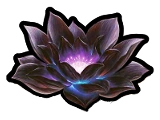Barinellos (talk | contribs) (→Balanced Moxen: B&R already linked in the section above) |
|||
| Line 21: | Line 21: | ||
File:mox_opal.jpg |
File:mox_opal.jpg |
||
</gallery> |
</gallery> |
||
| − | Apart from the original five, three others have been released in various sets over the years. Each of these additional moxen were attempts by the game designers to create more balanced versions of the original moxen by way of adding additional costs beyond the zero mana [[casting cost]]. Despite these additional costs, each of the 'balanced' moxen are considered to be quite powerful and have found their way onto various |
+ | Apart from the original five, three others have been released in various sets over the years. Each of these additional moxen were attempts by the game designers to create more balanced versions of the original moxen by way of adding additional costs beyond the zero mana [[casting cost]]. Despite these additional costs, each of the 'balanced' moxen are considered to be quite powerful and have found their way onto various banned and restricted lists over the years. |
===Un-Moxen=== |
===Un-Moxen=== |
||
Revision as of 04:47, 18 February 2015
The moxen (plural for mox, the common name among this cycle of cards) are a powerful series of zero mana cost artifact cards, each depicting a piece of jewelry (usually containing a gemstone) and that produce some variety of mana.
Storyline
A full set powerful mana-infused gems infused was owned by Liana of Minorad. Liana gave them to Kristina of the Woods and Jared Carthalion during her duel with Ravidel at Minorad so that he would not take them. Ravidel claimed various times that the Moxen had once belonged to him; at the battle with Jared, Kristina, Altair of Coloni and Caliphear the Nightmare against Ravidel at the Dueling Chasm of Golthonor, Ravidel used the Mox Jet, Mox Ruby, and Mox Sapphire to activate the Mox Beacon.
Card History
The Original Moxen
The original five moxen are rare artifacts which produce one of the five colors of mana. The original moxen account for five of the Power Nine cards from the Alpha, Beta, and Unlimited sets (the earliest editions of Magic: The Gathering, printed in 1993) and thus are widely considered to be among the most powerful (and expensive) cards in the game. The cause for this is the ability to play multiples in a single turn, giving an unbalanced, extremely powerful mana acceleration which led to them being restricted in Vintage and completely banned in every other format very early in the game's history. All five of the original moxen (along with the original art for Mox Diamond) were illustrated by Dan Frazier. Due to the original moxen appearing in the Alpha and Beta releases of Magic: The Gathering they are also present within the Collectors' Edition and International Collectors' Edition sets (both also released in 1993).
Balanced Moxen
Apart from the original five, three others have been released in various sets over the years. Each of these additional moxen were attempts by the game designers to create more balanced versions of the original moxen by way of adding additional costs beyond the zero mana casting cost. Despite these additional costs, each of the 'balanced' moxen are considered to be quite powerful and have found their way onto various banned and restricted lists over the years.
Un-Moxen
The non-DCI sanctioned Unglued and Unhinged sets feature one mox each. Per the Unglued and Unhinged theme, each of these moxen include appropriately ridiculous abilities but are not usable in DCI sanctioned tournaments.
Magic: The Gathering Online Availability
The original moxen were unavailable on Magic Online until the online only set Vintage Masters debuted in June of 2014. These original moxen (along with the rest of the Power Nine and several other Vintage staples) use the Modern card frame and have alternate artwork, previously used for awards given to winners of the Vintage Championship tournament series held annually at Gen Con, by artist Volkan Baga. Chrome Mox and Mox Opal both appeared along with the rest of their initial release sets, Mirrodin in 2003 and Scars of Mirrodin in 2010. Mox Diamond eventually debuted online along with the rest of Stronghold in 2009, long after the sets initial release in 1998.
Reprints
The original moxen and Mox Diamond were placed on the Reserved List by Wizards of the Coast and thus won't be physically reprinted again. An earlier version of Official Reprint Policy allowed for special premium reprints of cards found on the Reserved List, thus allowing Mox Diamond to appear as a reprint in the From the Vault: Relics set, released in 2010. Reactions to this led to an amendment of the Official Reprint Policy to allow for the online release of the cards, but disabling any further physical reprint.
Sources
- The Shadow Mage
- Wayfarer
External link
- Wizards of the Coast's Official Reprint Policy
- Monty Ashley (May 10, 2010). "Alternate Moxen". magicthegathering.com. Wizards of the Coast.

















